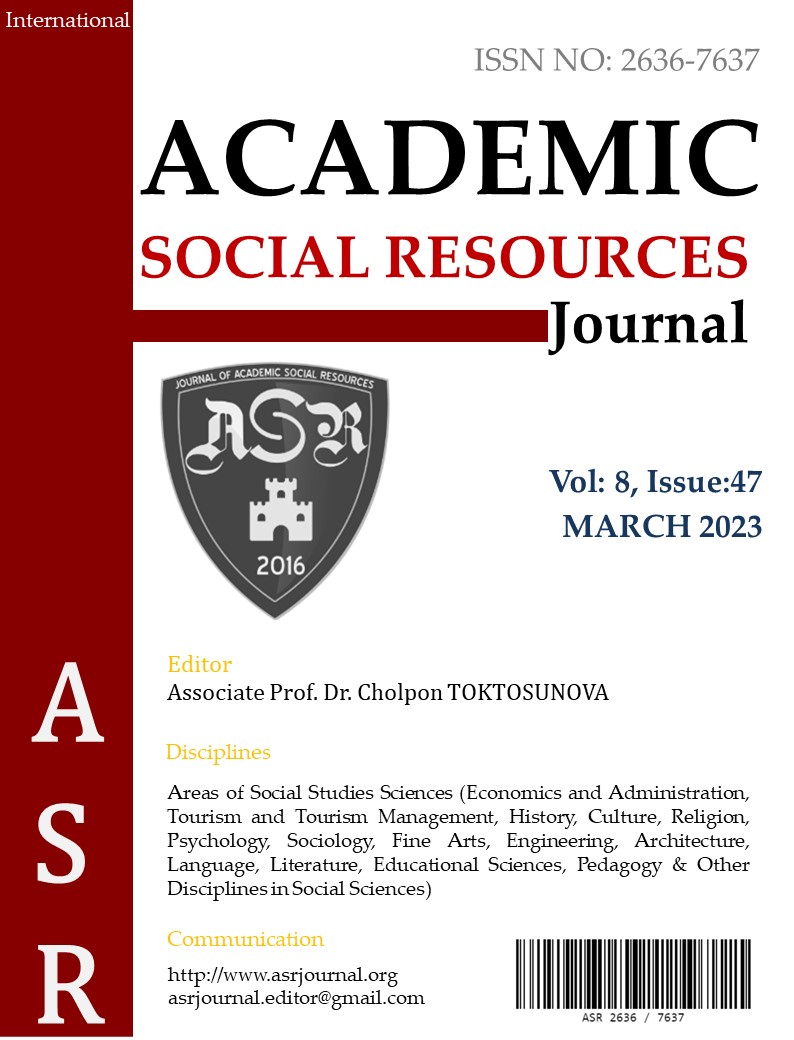Author :
Abstract
Spor Seyircisi; bir müsabakayı izleyen kişiye, taraftar ise; bir spor kulübünü takip edip onu destekleyen bireylere denir. Taraftarlık sosyal hayatın pek çok alanında kendini göstermektedir. Taraftarlığın oluşabilmesi için değerleri farklı olan birden fazla düşünce bulunmalıdır. Taraftar kendi düşüncesini karşı taraftan farklı hisseden ve değerlerinin farkındalığıdır. Teknolojinin kötü niyetli bireyler tarafından kullanılması geleneksel zorbalığın sanal ortamlarda yaşanan siber zorbalığa dönüşmesine neden olmuştur. Bu çalışmanın amacı, farklı branş seyircisi olan askeri üniversitede öğrenim gören öğrencilerinin, siber zorbalık davranışlarının incelenmesidir. Bu araştırmada tarama modeli kullanılmıştır. Araştırmanın evrenini, Jandarma ve Sahil Güvenlik Akademisinde öğrenim gören 300 akademi öğrencisi oluşturmaktadır. Çalışmanın veri toplama aracı, kişisel bilgi formu ve Karaca (2019) tarafından geliştirilen ‘‘siber zorbalık davranışları ölçeği’’ kullanılmıştır. Verilerin analizinde One Way ANOVA ve Tukey testleri kullanılmıştır. Çalışma sonucuna göre, çalışmaya katılan öğrencilerin siber zorbalık düzeyleri ile müsabaka izleme sıklığı arasındaki anlamlı sonuç bulunmuştur. Araştırmaya katılan Katılımcıların %40,66’sı futbol, %33,66’sı basketbol, %17,3’ü voleybol, %4,6’sı hentbol ve %3,6’sı ise diğer branşların spor seyircisidir. Çalışmaya dahil edilen akademi öğrencilerinin siber zorbalık düzeyleri ile tercih ettiği spor branşı değişkeni arasında ki sonuca bakıldığında, siber zorbalık ile spor branşı değişkeni arasında anlamlı sonuca ulaşılmıştır. Siber zorbalık ile futbol branşı seyircilerinin zorbalık skorlarının basketbol, voleybol, hentbol ve diğer spor branşı seyircileri siber zorbalık dereceleri anlamlı derecede yüksek olduğu görülmüştür.
Keywords
Abstract
Sports Spectator; to the person watching a competition, if it is a fan; individuals who follow and support a sports club. Advocacy manifests itself in many areas of social life. In order for partisanship to occur, there must be more than one thought with different values. The fan is someone who feels his own opinion different from the other side and is aware of his values. The use of technology by malicious individuals has led to the transformation of traditional bullying into cyberbullying in virtual environments. The aim of this study is to examine the cyberbullying behaviors of students studying at military universities with different branch audiences. In this research, screening model was used. The universe of the study consists of 300 academy students studying at the Gendarmerie and Coast Guard Academy. The data collection tool, personal information form and the "cyberbullying behaviors scale" developed by Karaca (2019) were used. One Way ANOVA and Tukey tests were used in the analysis of the data. According to the results of the study, a significant result was found between the cyberbullying levels of the students participating in the study and the frequency of watching the competition. 40.66% of the participants who participated in the research were football, 33.66% were basketball, 17.3% were volleyball, 4.6% were handball and 3.6% were sports spectators of other branches. When the result between the cyber bullying levels of the academy students included in the study and the preferred sports branch variable was examined, a significant result was reached between cyber bullying and the sports branch variable. It was observed that the bullying scores of the spectators of the football branch with cyber bullying were significantly higher than the cyberbullying scores of the spectators of basketball, volleyball, handball and other sports branches.





